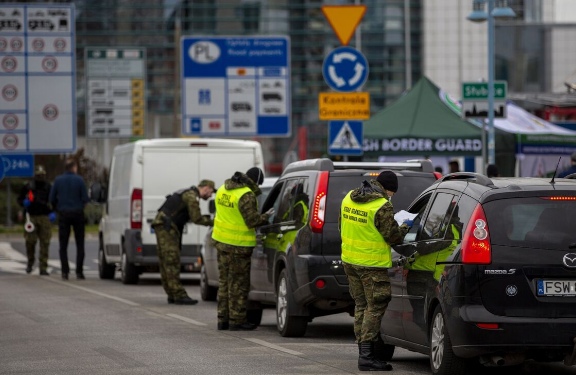The EU reached agreement Wednesday on new rules designed to evenly distribute the costs and work of admitting migrants and limit the number of people arriving.
The agreement, called the New Pact on Migration and Asylum, is due to come into force next year.
The new laws cover checks on irregular migrants on arrival in the EU, procedures for processing asylum claims, rules for determining the EU country responsible for processing claims and how crisis situations are handled.
German Chancellor Olaf Scholz said the agreement reached in the past was very important and would provide relief to affected countries – including Germany. Italian Interior Minister Matteo Piantedosi called the pact a “great success” for Europe and Italy.
Previous attempts to share responsibility for accepting migrants failed as eastern EU members in particular were unwilling to accept people arriving in Greece, Italy and other countries.
Under the new system, non-border countries will have to choose between accepting their share of the 30,000 asylum seekers and paying at least 20,000 euros ($21,870) per person into an EU fund.
The screening system envisaged will aim to distinguish those in need of international protection from those who are not.
Dozens of charities helping migrants and refugees, including Amnesty International, Oxfam, Caritas and Save the Children criticised the pact, saying in an open letter that the package would “mirror the failed approaches of the past and exacerbate their consequences”. The letter by 56 NGOs said:
“If adopted in its current format, it will normalise the arbitrary use of immigration detention, including for children and families, increase racial profiling, use ‘crisis’ procedures to enable pushbacks, and return individuals to so called ‘safe third countries’ where they are at risk of violence, torture, and arbitrary imprisonment. We should strengthen, not weaken, our reception and asylum systems and provide mechanisms to fairly share responsibility between European states.”
Amnesty representatives also said the agreement reinforced the EU’s reliance on states beyond its borders to manage migration, building on recent deals with Albania, Libya, Tunisia and Turkey. They added:
“Rather than investing in dignified reception within the EU and expanding safe and regular pathways to allow people to reach protection in Europe without relying on dangerous journeys, this amounts to a further step towards externalising border control and evading Europe’s refugee protection responsibilities.”
The number of migrants arriving in the EU has fallen significantly from its peak of more than 1 million in 2015, but has risen steadily from a 2020 low of 255,000 in the year to November, with more than half crossing the Mediterranean from Africa, mostly to Italy.
